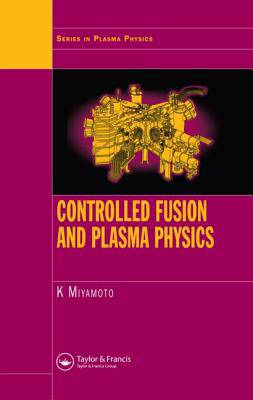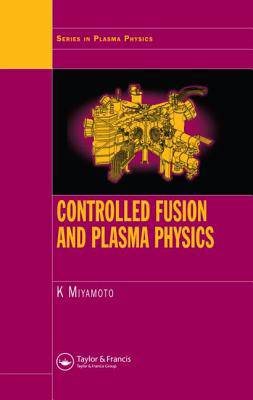
- Retrait gratuit dans votre magasin Club
- 7.000.000 titres dans notre catalogue
- Payer en toute sécurité
- Toujours un magasin près de chez vous
- Retrait gratuit dans votre magasin Club
- 7.000.000 titres dans notre catalogue
- Payer en toute sécurité
- Toujours un magasin près de chez vous
Description
Resulting from ongoing, international research into fusion processes, the International Tokamak Experimental Reactor (ITER) is a major step in the quest for a new energy source.The first graduate-level text to cover the details of ITER, Controlled Fusion and Plasma Physics introduces various aspects and issues of recent fusion research activities through the shortest access path.
The distinguished author breaks down the topic by first dealing with fusion and then concentrating on the more complex subject of plasma physics. The book begins with the basics of controlled fusion research, followed by discussions on tokamaks, reversed field pinch (RFP), stellarators, and mirrors. The text then explores ideal magnetohydrodynamic (MHD) instabilities, resistive instabilities, neoclassical tearing mode, resistive wall mode, the Boltzmann equation, the Vlasov equation, and Landau damping. After covering dielectric tensors of cold and hot plasmas, the author discusses the physical mechanisms of wave heating and noninductive current drive. The book concludes with an examination of the challenging issues of plasma transport by turbulence, such as magnetic fluctuation and zonal flow.
Controlled Fusion and Plasma Physics clearly and thoroughly promotes intuitive understanding of the developments of the principal fusion programs and the relevant fundamental and advanced plasma physics associated with each program.
Spécifications
Parties prenantes
- Auteur(s) :
- Editeur:
Contenu
- Nombre de pages :
- 406
- Langue:
- Anglais
- Collection :
Caractéristiques
- EAN:
- 9781584887096
- Date de parution :
- 23-10-06
- Format:
- Livre relié
- Format numérique:
- Ongenaaid / garenloos gebonden
- Dimensions :
- 166 mm x 236 mm
- Poids :
- 703 g







